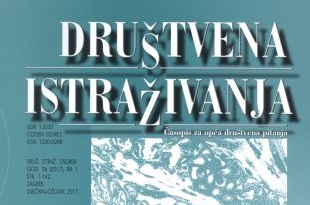ÉMILE DURKHEIMOVA KRITIKA ANIMIZMA I NATURALIZMA
ÉMILE DURKHEIM´S CRITIQUE OF ANIMISM AND NATURALISM
Author(s): Željko OštarićSubject(s): Philosophy of Religion, 19th Century
Published by: Institut društvenih znanosti Ivo Pilar
Keywords: Émile Durkheim; Animism and Naturalism;
Summary/Abstract: In the first part of the article, as a kind of introduction to understanding Durkheim's critique of animism and naturalism, the author has tried to show that animism and naturalism, despite their theoretical and methodological incompatibility, can be comparatively analysed by using three postulations: universalism, positivism and evolutionarism. In the second part the author considers Durkheim's critical rejection of the basic tenets of animism and naturalism. The principal reason for the rejection of both animism and naturalism was indentical: both theories either ignored the sacred or reduced it to a groundless illusion. Briefly, on the one hand, naturalism derived religion from the primitive feelings which personified the awesome forces of nature. In the linguistically oriented formulation of Max Müller, this concept of natural processes was attributed to the metaphoric power of language. In this sense, according to Durkheim, religion was "an immense metaphor without objective value".
Journal: Društvena istraživanja - Časopis za opća društvena pitanja
- Issue Year: 8/1999
- Issue No: 43+44
- Page Range: 881-898
- Page Count: 18
- Language: Croatian

